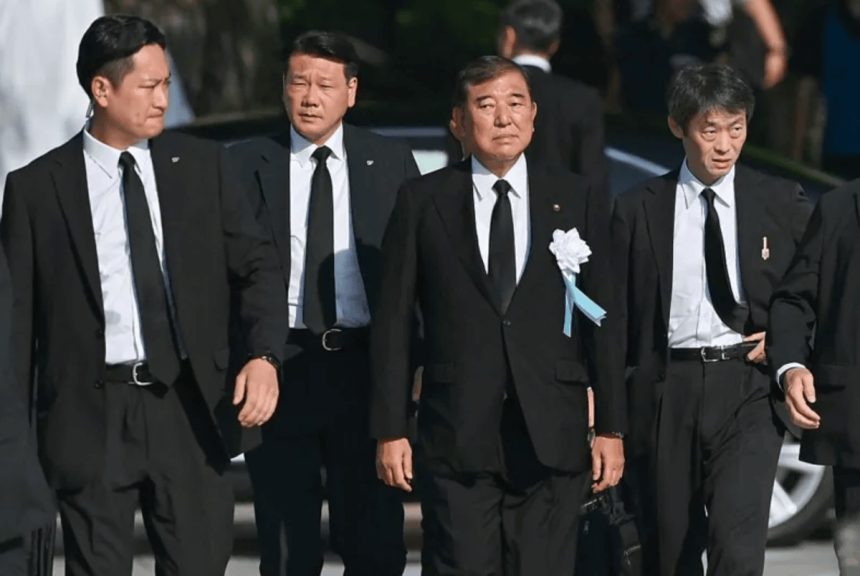Hiroshima marked the 80th anniversary of the world’s first wartime atomic bombing on Wednesday, with thousands gathering to honour the victims and call for renewed global commitment to nuclear disarmament.
The solemn ceremony, held at the Hiroshima Peace Memorial Park, drew representatives from 120 countries and territories, including the United States and Israel. A moment of silence was observed at exactly 8:15 a.m., the time when the bomb was dropped by the U.S. Air Force on August 6, 1945.
The attack, which targeted a major Japanese military hub, was designed to maximize devastation by leveraging the city’s surrounding mountains to concentrate the bomb’s destructive force.
The bomb released heat surging up to 4,000 degrees Celsius (7,200 Fahrenheit) and radiation that led to tens of thousands more deaths by the end of that year. Three days later, a second bomb was dropped on Nagasaki. Japan surrendered on August 15.
To commemorate the 80th anniversary, representatives from 120 countries and territories — including the United States and Israel, which has never confirmed or denied possessing nuclear weapons — attended a memorial service at Hiroshima Peace Memorial Park.
At exactly 8:15 a.m., the time the bomb was detonated, attendees observed a moment of silence. Hiroshima Mayor Kazumi Matsui then addressed the global audience with a stern warning.
“Among the world’s political leaders, there is a growing belief that possessing nuclear weapons is unavoidable in order to protect their own countries,” he said, highlighting that the United States and Russia currently hold 90% of the world’s nuclear warheads.
“This situation not only nullifies the lessons the international community has learned from the tragic history of the past, but also seriously undermines the frameworks that have been built for peace-building,” Matsui added. “To all the leaders around the world: Please visit Hiroshima and witness for yourselves the reality of the atomic bombing.”
Among those reflecting at the ceremony was 71-year-old tourist Yoshikazu Horie, who expressed his concern over the present geopolitical climate.
“It feels more and more like history is repeating itself. Terrible things are happening in Europe … Even in Japan, in Asia, it’s going the same way, it’s very scary. I’ve got grandchildren and I want peace so they can live their lives happily,” he said.
The long-term survivors of the attack, known as “hibakusha,” have often faced stigma and discrimination, with unfounded fears that they carried genetic illnesses. This year, for the first time, the number of survivors has dropped below 100,000.
While Japan continues to uphold its commitment to nuclear disarmament, it is not a signatory or observer of the United Nations treaty that seeks to ban nuclear weapons.
(Reuters)
ALSO READ TOP STORIES FROM NIGERIAN TRIBUNE
WATCH TOP VIDEOS FROM NIGERIAN TRIBUNE TV
- Let’s Talk About SELF-AWARENESS
- Is Your Confidence Mistaken for Pride? Let’s talk about it
- Is Etiquette About Perfection…Or Just Not Being Rude?
- Top Psychologist Reveal 3 Signs You’re Struggling With Imposter Syndrome
- Do You Pick Up Work-Related Calls at Midnight or Never? Let’s Talk About Boundaries






